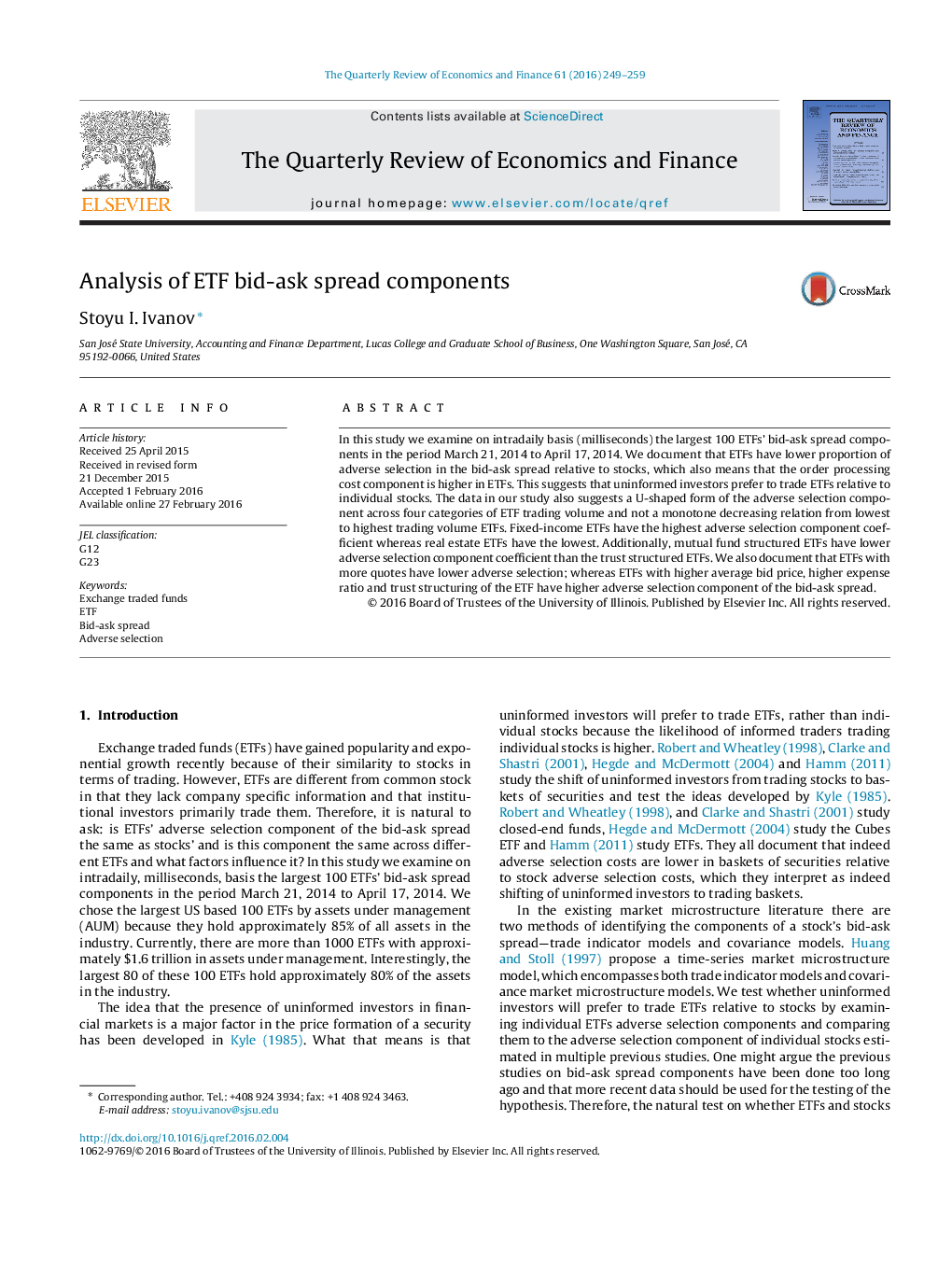| کد مقاله | کد نشریه | سال انتشار | مقاله انگلیسی | نسخه تمام متن |
|---|---|---|---|---|
| 982001 | 1480439 | 2016 | 11 صفحه PDF | دانلود رایگان |
• We examine on intradaily basis (milliseconds) the largest 100 ETFs’ bid-ask spread components in the period March 21, 2014 to April 17, 2014 and how they are similar to stocks.
• We document that ETFs have lower proportion of adverse selection in the bid-ask spread relative to stocks, which also means that the order processing cost component is higher in ETFs.
• The data in our study also suggests a U-shaped form of the adverse selection component across four categories of ETF trading volume.
• Mutual fund structured ETFs have lower adverse selection component coefficient than the trust structured ETFs.
• ETFs with fewer quotes, higher average bid price, higher expense ratio and trust structuring of the ETF have higher adverse selection component of the bid-ask spread.
In this study we examine on intradaily basis (milliseconds) the largest 100 ETFs’ bid-ask spread components in the period March 21, 2014 to April 17, 2014. We document that ETFs have lower proportion of adverse selection in the bid-ask spread relative to stocks, which also means that the order processing cost component is higher in ETFs. This suggests that uninformed investors prefer to trade ETFs relative to individual stocks. The data in our study also suggests a U-shaped form of the adverse selection component across four categories of ETF trading volume and not a monotone decreasing relation from lowest to highest trading volume ETFs. Fixed-income ETFs have the highest adverse selection component coefficient whereas real estate ETFs have the lowest. Additionally, mutual fund structured ETFs have lower adverse selection component coefficient than the trust structured ETFs. We also document that ETFs with more quotes have lower adverse selection; whereas ETFs with higher average bid price, higher expense ratio and trust structuring of the ETF have higher adverse selection component of the bid-ask spread.
Journal: The Quarterly Review of Economics and Finance - Volume 61, August 2016, Pages 249–259
